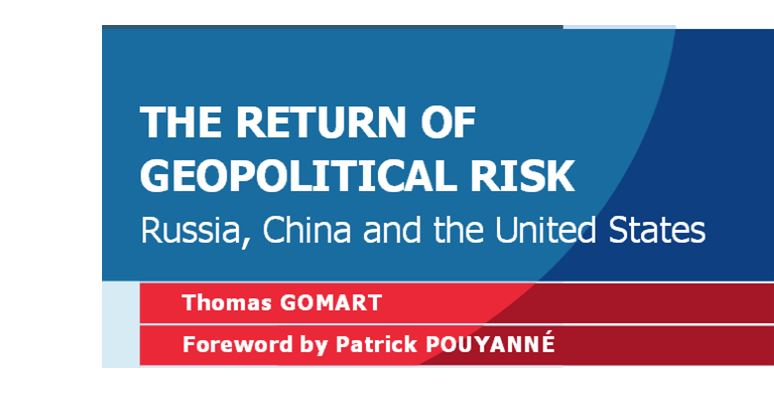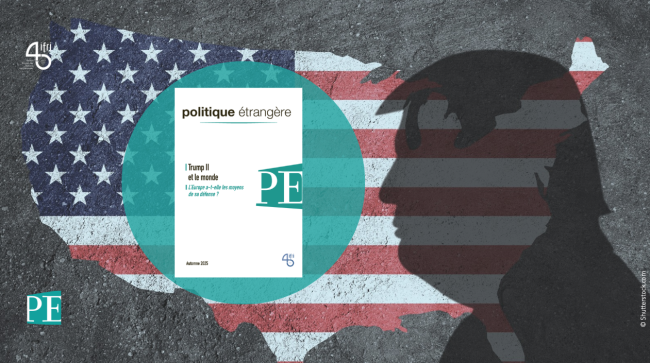The Return of Geopolitical Risk - Russia, China and the United States

The year 2014 was defined by the conflict in Ukraine, the emergence of Daesh, and tensions between China and Japan. As for 2015, it has witnessed the spread of Daesh, the conflict in Yemen, the Greek crisis, revelations about the activity of the National Security Agency (NSA), the migrant crisis, and a ramping-up of terrorist attacks.

This proliferation of crises has contributed to a “return” of geopolitics, or, in other words, to power rivalries that may sound the death-knell for the kind of globalization that ignores territorial boundaries. For some, this “return” is embodied by three countries – China, Russia and Iran – and takes the form of an open challenge to the international order established at the end of the Cold War. For others, this “return” is nothing of the sort, but simply the continuation of traditional rivalries between great powers. In this regard, China and India, which are accused of “revisionism” but are integrated into the global economy, have not taken up an aggressive stance of challenging the world order, but a defensive stance, which consists of protecting their sovereignty and regional influence.
Whichever interpretation they favor, decision-makers in the public and private sectors now largely agree on the fact that the international environment has seriously and rapidly deteriorated since the financial crisis of 2008.
This paper is the product of a partnership between the Institut de l’Entreprise and Ifri.
This paper is also available in French: http://www.ifri.org/fr/publications/publications-ifri/articles-ifri/retour-risque-geopolitique-triangle-strategique-russie

Available in:
Regions and themes
Share
Download the full analysis
This page contains only a summary of our work. If you would like to have access to all the information from our research on the subject, you can download the full version in PDF format.
The Return of Geopolitical Risk - Russia, China and the United States
Related centers and programs
Discover our other research centers and programsFind out more
Discover all our analysesBrazil One Year Away from the October 2026 General Elections
Brazil’s general elections will be held on October 4, 2026, to elect the president, vice-president, members of the National Congress, governors, deputy governors and state legislative assemblies. For the presidential and gubernatorial elections, a second round will be held on October 25 if no candidate obtains a majority of the votes in the first round.
Trump II: The Clash of Ideologies
The second Trump administration brings together a number of very different, even opposing, ideologies: far-right populism, the reactionary Christian right, paleolibertarianism, and technolibertarianism. The most visible measures taken since Donald Trump's return to the White House have been populist in nature, with the president's authority strengthened, checks and balances weakened, a form of identity politics embraced, and economic nationalism implemented.
Water in Mexico: an Emergency that Will Wait
Access to water is already and will become increasingly problematic for Mexican economic actors due to the progressive scarcity of the resource resulting from climate change, a geographical distribution that does not coincide with that of the population or economic activity, and management that has so far been far too lax.
Donald Trump v. the States: the Case of New York
While the disruptive policies of the second Trump administration are being implemented at the federal level and on the international stage, they are also being felt in the federal states and major cities across the country. In the spring of 2025, several cases involving the state and city of New York demonstrate that the president’s attacks on environmental protection, the separation of powers, freedom of speech, etc., are also being carried out at the local level.












